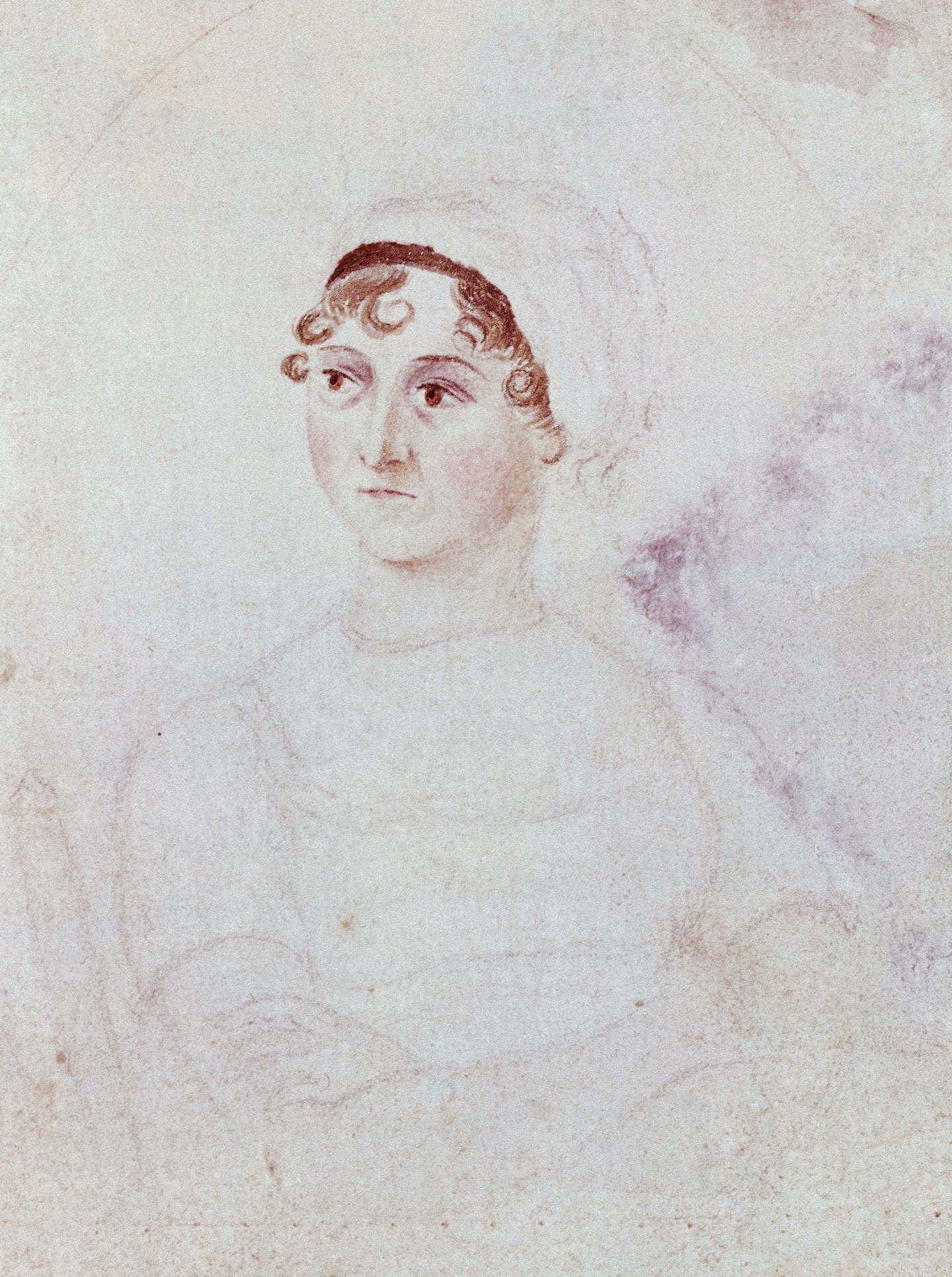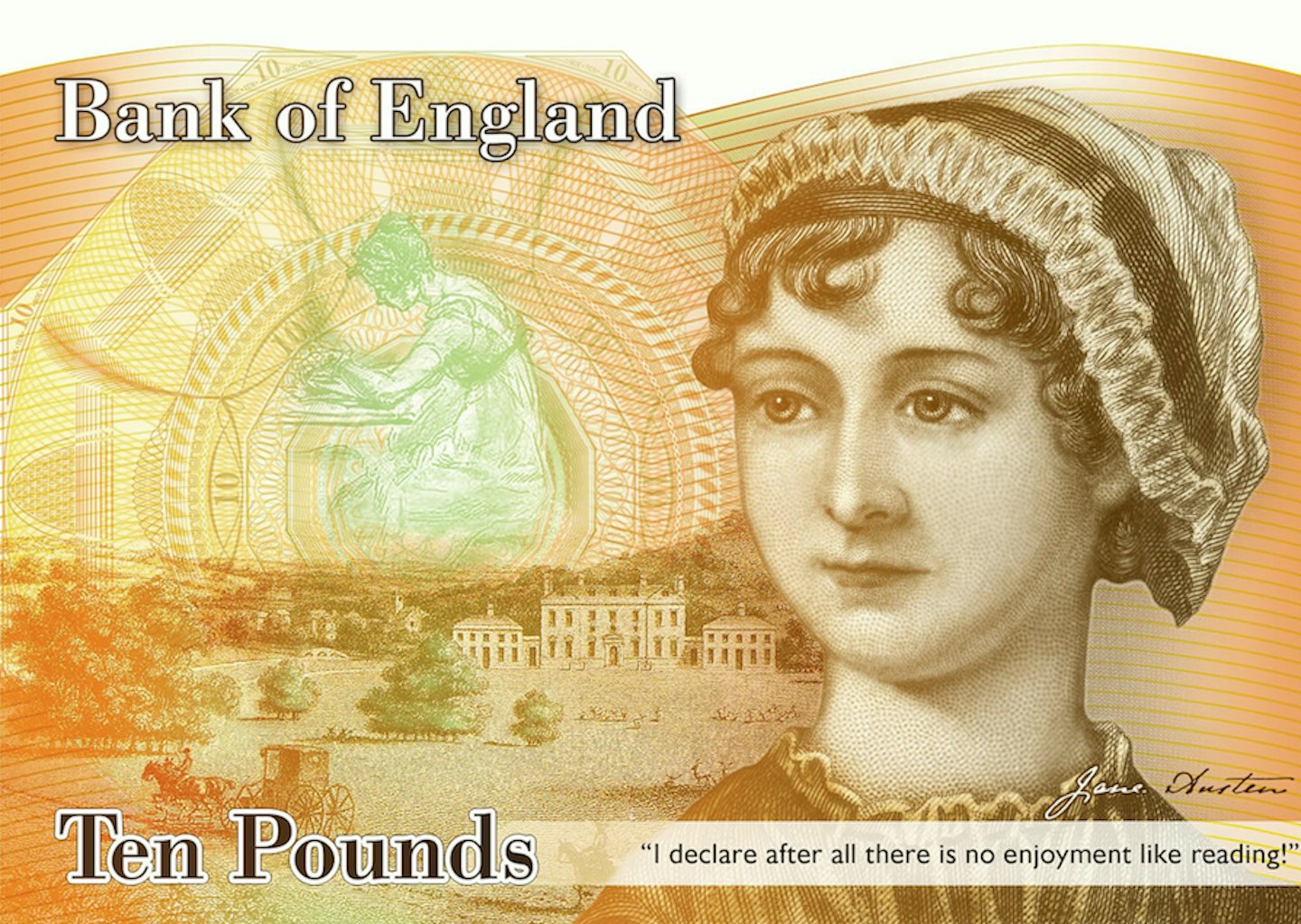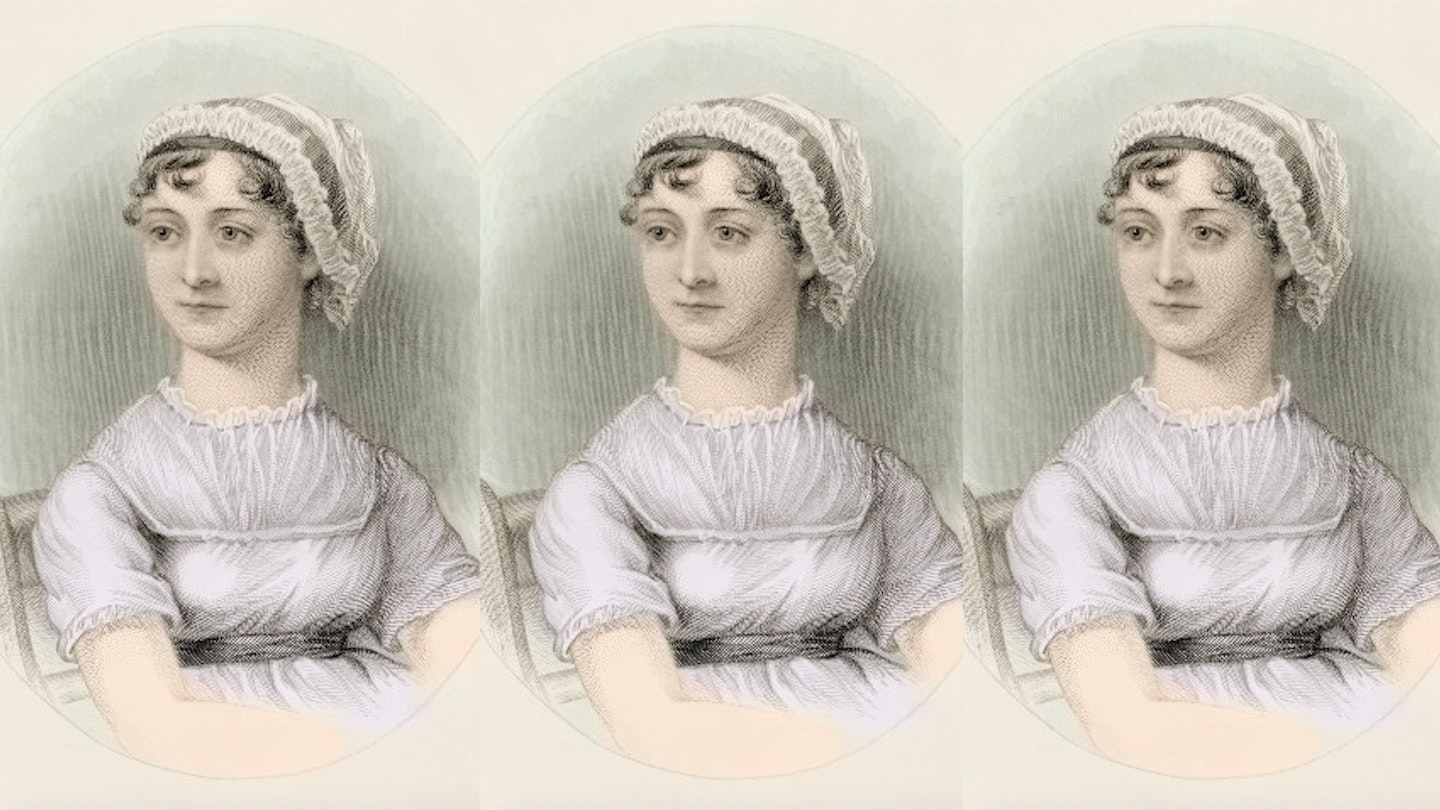Were Jane Austen around today, it's fair to say that the author of Pride and Prejudice and Emma would apply her brilliantly acerbic turns of phrase to selfie culture and our obsession with presenting a perfectly filtered image to the rest of the world. But now, on the 200th anniversary of her death, even Austen isn't immune to airbrushing: campaigners have pointed out that the Bank of England has chosen to use a 'publicity portrait' of the author on the new £10 note, instead of using a more accurate portrayal.
Though few images of Austen survive, it has long been accepted that a sketch drawn by her sister and confidante Cassandra, dated to around 1810 and currently found in the National Portrait Gallery, is by far the most accurate representation of the much-loved author.
For the new £10 note, however, the Bank of England opted for a sketch that was painted after Austen's death, in which she more closely adheres to the Georgian ideal of beauty with wide eyes, a fuller face and a more placid expression.

Speaking to The Sunday Times, Austen biographer Paula Byrne said: 'They presumably said to the artist, make it look prettier. It is like doctoring a selfie by a celebrity. It is such a shame because that demure image is just not Austen.'
Historian Lucy Worsley had a similar verdict, describing the choice of image as 'deeply ironic.'
'Jane Austen fans are pleased, obviously, that she’s going to appear on the banknote, but it’s deeply ironic that the image chosen by the Bank of England isn’t really her.'
'It’s an author publicity portrait after she died in which she’s been given the Georgian equivalent of an airbrushing,' she added.
'Jane had a much sharper face – some might call it sour. And she was a sharp person. I think of her as being like a bracing martini.'

Austen will be the only woman other than the Queen to feature on circulating currency, though Florence Nightingale and Elizabeth Fry have previously appeared on British banknotes.
It's certainly a shame, though, that the Bank felt it necessary to opt for a more conventionally 'photogenic' image of Austen over interests of historical accuracy. The keen-eyed reader will also note that the choice of quote is a misguided one. 'I declare after all there is no enjoyment like reading!' is not a line uttered by Austen herself, but placed in the mouths of one of her least pleasant characters, Pride and Prejudice's Caroline Bingley. In an attempt to win over Mr Darcy, she waxes lyrical about the joys of reading, delivering her empty platitudes with a yawn while her own book (chosen 'because it was the second volume of his') is firmly shut. Hardly a convincing argument in favour of the joys of literature, then...
We're sure that Austen would see the irony.
READ MORE: Literature's Great Romantic Heroes Ranked In Order Of Dating Potential
